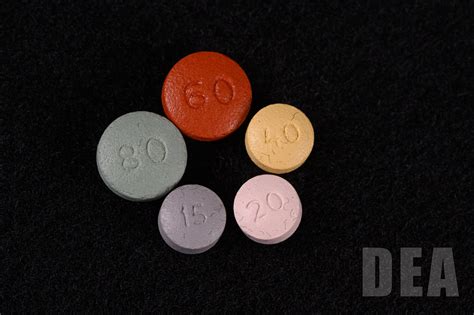Blood Glucose Normal Range

Maintaining blood glucose levels within a normal range is crucial for overall health, particularly for individuals with diabetes or those at risk of developing the condition. Blood glucose, also known as blood sugar, is the amount of glucose present in the blood. Glucose is a simple sugar that serves as the primary source of energy for the body’s cells. The normal range for blood glucose levels can vary slightly depending on the timing of the last meal and the specific testing method used.
For individuals without diabetes, normal blood glucose levels are typically as follows: - Fasting blood glucose levels (after at least 8 hours without food or drink): Less than 100 mg/dL (milligrams per deciliter). - Postprandial blood glucose levels (after eating): Less than 140 mg/dL at 2 hours after eating.
It’s essential to understand that these values are general guidelines. Factors such as physical activity, stress levels, and certain medications can influence blood glucose levels. Furthermore, the definition of normal can slightly vary between different health organizations and clinical guidelines.
The American Diabetes Association (ADA) provides specific criteria for diagnosing diabetes and prediabetes based on blood glucose levels: - Normal: Fasting glucose less than 100 mg/dL and 2-hour postprandial glucose less than 140 mg/dL. - Prediabetes (Impaired Glucose Tolerance): Fasting glucose between 100 mg/dL to 125 mg/dL or 2-hour postprandial glucose between 140 mg/dL to 199 mg/dL. - Diabetes: Fasting glucose of 126 mg/dL or higher or 2-hour postprandial glucose of 200 mg/dL or higher.
Understanding and managing blood glucose levels is key to preventing complications associated with diabetes, such as cardiovascular disease, kidney damage, and nerve damage. Lifestyle modifications, including a balanced diet, regular physical activity, and maintaining a healthy weight, can significantly impact blood glucose control. For those requiring medical intervention, various treatments, including medications and insulin therapy, can help achieve and maintain target blood glucose levels.
Factors Affecting Blood Glucose Levels
Several factors can influence blood glucose levels, including: - Diet: The type and amount of carbohydrates consumed can significantly affect blood glucose levels. Carbohydrates have the greatest impact on blood glucose because they are broken down into glucose during digestion. - Physical Activity: Exercise can lower blood glucose levels by increasing the body’s sensitivity to insulin, thereby facilitating glucose uptake into cells. - Stress: Stress can raise blood glucose levels due to the release of stress hormones like cortisol and adrenaline, which cause the liver to release stored glucose (glycogen) into the bloodstream. - Medications: Certain medications can impact blood glucose levels. For example, steroids and some psychiatric medications can increase blood glucose, while others, such as metformin, are used to lower blood glucose.
Managing Blood Glucose Levels
Effective management of blood glucose levels involves a multifaceted approach: - Monitoring: Regularly checking blood glucose levels helps in understanding the patterns and effects of different factors on blood glucose. - Dietary Changes: Following a balanced diet that is low in added sugars, saturated fats, and sodium, and high in fiber, vitamins, and minerals is crucial. - Exercise: Engaging in regular physical activity, such as walking, can significantly improve insulin sensitivity. - Medication Adherence: For those on medication, adhering to the prescribed regimen is vital for maintaining blood glucose control. - Lifestyle Modifications: Getting adequate sleep, managing stress through techniques like meditation or yoga, and avoiding smoking and excessive alcohol consumption are also important.
What are the normal blood glucose levels for someone without diabetes?
+For individuals without diabetes, normal fasting blood glucose levels are typically less than 100 mg/dL, and postprandial levels (after eating) are less than 140 mg/dL at 2 hours after eating.
How often should I check my blood glucose levels if I have diabetes?
+The frequency of checking blood glucose levels can vary depending on the type of diabetes, treatment plan, and individual factors. Generally, it's recommended to check levels at least four times a day: before breakfast, before lunch, before dinner, and at bedtime. However, this should be personalized based on your healthcare provider's advice.
Can diet and exercise alone manage blood glucose levels for someone with diabetes?
+For some individuals, particularly those with type 2 diabetes or prediabetes, dietary changes and regular exercise can significantly help in managing blood glucose levels. However, for many, especially those with type 1 diabetes or advanced type 2 diabetes, medication or insulin therapy may also be necessary. It's crucial to work with a healthcare provider to develop a personalized management plan.
In conclusion, maintaining blood glucose levels within a normal range is fundamental for preventing the complications of diabetes and ensuring overall well-being. Through a combination of lifestyle modifications, regular monitoring, and, when necessary, medication, individuals can effectively manage their blood glucose levels and reduce the risk of associated health issues. As research continues to uncover new insights into glucose metabolism and diabetes management, staying informed and adapting to these advancements can play a critical role in achieving optimal health outcomes.



